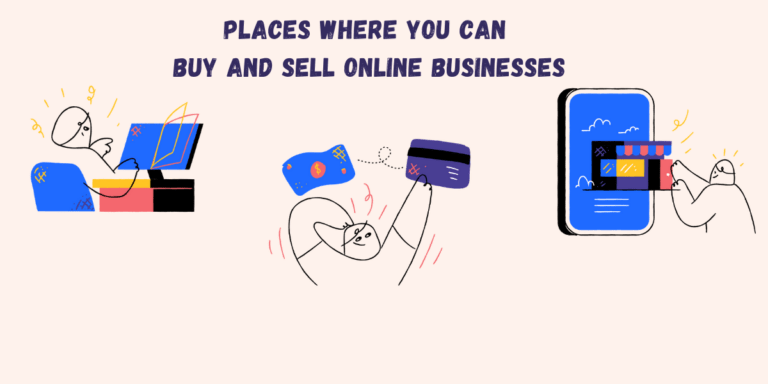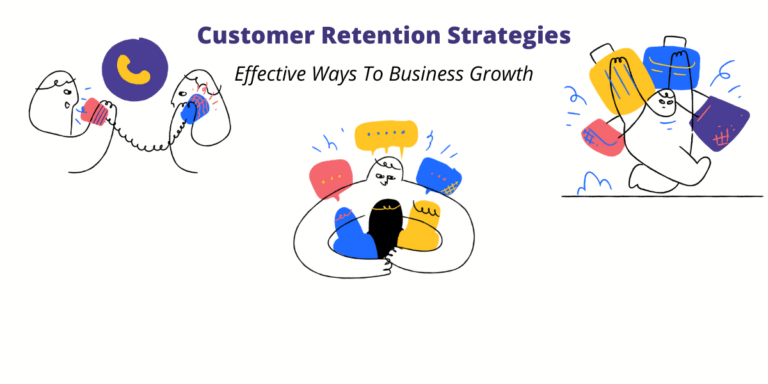Buy a Business: The Popular Ways to Buy a Business for Sale
Why Buy a Business?
Here’s a thought – wouldn’t it be wonderful to own a thriving, profitable business without the grueling process of building it from scratch? Yes, we’re talking about the fantastic opportunity of buying an existing business! Just like looking for a perfect home, many entrepreneurs find great value in purchasing a business that’s already well-established. It’s an ideal route for many, presenting numerous benefits. An established business already has a history of cash flow and profitability, eliminating the uncertainty of a startup’s success.
When buying a business, you can choose one in an industry you’re familiar with, augmenting your chance of success. Existing businesses often have a diverse customer base, ensuring that no single client has a significant revenue monopoly. Many businesses for sale demonstrate a long-term growth plan, offering budding entrepreneurs room for expansion and development.
The ultimate advantage? You can buy a business you see yourself genuinely enjoying, making every day at work feel less like a job and more like a passion. Embracing this path lets you bypass the significant leap of startup costs and initial struggles, setting your entrepreneurial journey on a path of proven success.

Popular Ways to Buy a Business for Sale
1. Purchase through a Franchise
Starting a venture with a proven business model seems like a no-brainer, right? That’s exactly what you’re doing when you decide to buy into a franchise. With the brand’s reputation already established, and the business model and operations typically ironed out, buying a franchise provides a springboard to business ownership.
Why is it popular? Well, buying a franchise is akin to getting an all-in-one business package, designed to save you from the ground-up planning and uncertainty that characterizes new businesses. Plus, you also benefit from the proven success of the franchise’s brand and system.
2. Buy a Business Asset
Buying a business asset can be an exciting venture! It’s a popular choice for those wanting to dip their toes into entrepreneurship. You, like many others, might find this method appealing. Why? Let’s delve into what makes it a great option.
- Asset purchasing facilitates choice; buying only the assets you need.
- It doesn’t saddle you with the company’s liabilities.
- It offers greater control over the acquisition process.
- It often carries less tax obligations compared to a stock purchase.
3. Buy a Business through a DealStream
Looking to buy a business? Consider DealStream. With a robust database of over 20,000 listings, it provides a comprehensive marketplace for potential buyers to explore varied investment opportunities. It’s a preferred method because it streamlines the search process and directly connects buyers to sellers.

4. Buy a Business through a Classifieds
Looking to buy a business through classifieds? Here’s your easy-to-follow guide, woven with expert tips.
- Begin your journey with clear criteria in mind for the type of business you’re seeking.
- Regularly scan online classifieds and newspapers for “Businesses for Sale” category.
- Harness local classifieds, ignoring them is a missed opportunity as they hold a goldmine of local business opportunities.
- Next, pay attention to details in classifieds. Remember, the golden opportunities often come from businesses not listed elsewhere or online.
- This process isn’t just about finding businesses for sale, but also making it known you’re a willing buyer. So, inform your networks.
- Finally, don’t forget the power of digital classifieds like Craigslist or BizBuySell, with over 45,000 listings, they’re a treasure trove.
Remember to be patient, buying a business through classifieds is like fishing which requires you to be patient while keeping an eye out for a big catch.
5. Buy a Business through a Partnership
Buying a business through partnership offers a unique alternative to solo entrepreneurship. Recognized for their vast potential and flexibility, partnerships often attract budding business enthusiasts. Having a partner in business can lead to amplified financial ability, diversified skills, shared risk, and increased creativity.
6. Buy a Business through Acquisition Loans
Buying a business through acquisition loans has been a popular alternative many entrepreneurs opt for. This method provides a structured and timely way to finance your business purchase, often making the process more feasible and less daunting.
- Access to extensive financial documents
- Lower risk for lenders
- Possible options include term loans, SBA loans, and asset-based financing
- Potential for seller cooperation
7. Buy a Business through Corporations
Consider buying a business through a corporation – an option preferred by many. This method is popular as it often eases the purchase process and alleviates some of the risks associated with starting a business.
- The business infrastructure is already set up: from employees to customer base.
- Allows for a stock or asset purchase, providing flexibility.
- May offer tax benefits, especially in asset purchases.
- Sometimes include real estate as part of the deal.
- Uncomplicated ownership transfer.
8. Buy a Business through Marketplaces
One popular method is to use online business marketplaces, like bizbuysell.com. These platforms make it feasible and efficient for both buyers and sellers to find the right match.
Here’s why it’s a good method:
- Wide range of businesses listed
- Various price points available
- Ability to specify search criteria
- Broker assistance for negotiation and paperwork
- Easy access to classifieds directly from business owners
9. Buy a Business through Uniform Franchise Offering Circulars
UFOC simply gives you extensive details about a franchise’s history, regulations, and contracts. For instance, let’s suppose you’re eyeing the chocolatey world of a renowned chocolate franchise. Getting their UFOC lets you view their financial situations, business history, and more.
10. Buy a Business through Venture Capitalists
Venture capitalists, you and I know them as savvy investors who can turn a promising business into a successful one. As a seasoned entrepreneur or an aspiring business owner, you may have considered buying a business through venture capitalists. This approach is gaining popularity because it not only gives you access to substantial funding but also brings industry experience and a vast network to your venture.
Expert tip: Be prepared with a clear business plan and exit strategy when approaching venture capitalists. Remember, these investors are looking for high-growth potential businesses with robust momentum.
Factors to Consider When Buying a Business
1. Risk and Reward
Step into the world of buying a business, where risks and rewards are intrinsically woven. Understanding these facets is paramount in making smart investment choices.
The act of business acquisition is akin to a thrilling rollercoaster. The ride – quite appealing. Be wary of rushed decisions due to the enticing premise of skip-starting initial growth stages.
Risks involved:
- Financial setback if the business doesn’t sustain.
- Presence of undisclosed liabilities.

Rewards in buying a business:
- Positive cash flows increase the chances of profitability.
- Ready customer base cuts down on initial marketing expenditure.
Before jumping in, thoroughly analyze the company’s financial stability, growth potential, and your familiarity with the industry. Gut instincts and financial data should hand-walk you through this journey.
2. Cost and Funding
Determining your budget and funding is a critical first step. Here’s why understanding costs and uncovering finance options should be on top of your checklist:
- Begin by assessing your present and future financial stature. This involves crafting a personal budget considering your planned expenses, anticipated income, upcoming major costs, and business start-up expenses.
- As you evaluate your financial condition, keep preparing informative financial documents; they play a crucial role while liaising with sellers or banks.
- Once you establish a clear picture of your finances, explore your financing avenues. Three primary categories include seller financing, business purchase loans, and alternative financing.

3. Legalities and Licenses
- Verify the business’s certification of good standing with the Secretary of State
- Check the local zoning laws to ensure business compliance
- Ensure no violation of environmental regulations
- Review of Letter of Intent
- Examination of existing contracts and leases
- Analysis of the business’s financial records
4. Team and Expertise
A trusted team gives you an edge. They’re capable of getting you the best listings and simplifying your search. They provide due diligence, help negotiate purchase agreements, and secure necessary approvals. Your team can align you with businesses that match your goals, resources, and budget. They help determine the ideal size, location, sales, staff, and other critical factors for your prospective business.
Experts in your team can guide you during complex phases. You’ll need the assistance of professionals like attorneys and accountants during the analysis, due diligence, and valuation steps.

5. Brand and Reputation
Imagine you’re on the verge of buying a business. If the business’s brand and reputation are less than stellar, will you still proceed with the deal?
Here’s why paying attention to the brand and reputation is essential:
- Reputation indicates existing customer loyalty: It reflects customers’ sentiments and their loyalty toward the business. Without a good reputation, the business transition may result in losing crucial customers.
- Perception of competitors and suppliers: Good reputation boosts the business stance among competitors and helps maintain healthy relations with suppliers and distributors.
- Revenue reflection: The brand image can influence the revenue stream, affecting the business’s sales rate.
- Part of Intellectual Property: Sometimes, the brand itself is an intellectual property that adds significant value to the business acquisition.
6. Customer Base
Imagine stepping into a thriving business with an already loyal customer base. That’s the advantage of buying an existing business! A solid customer base is the lifeline of any enterprise and needs careful consideration when buying a business. Earning customer loyalty takes time, so an established customer base ensures revenues from day one.
A diversified customer base, where no single client contributes more than 20% of the revenue, spreads your risk and secures your position in the market. It offers insights into customer preferences: An existing customer base helps identify the successful strategies that attract and retain customers in that business.

7. Cash Flow and Profitability
Evaluating the financial health of a business is paramount when considering an acquisition. Essential components to this evaluation are cash flow and profitability.
- Profitability demonstrates a business’s ability to generate earnings in relation to its expenses. It’s a clear indicator of a business’s performance and success, making it a key factor for potential buyers.
- Understanding cash flow provides insight into how effectively a business is managing its incoming and outgoing funds. A positive cash flow indicates the company can cover operating expenses and invest in growth.
- Assessing these two financial traits offers a snapshot of the current financial standing and future potential of a business.
- Without a positive cash flow and profitability, investing in a business could result in losses.
- Balance sheets, cash flow projections, and income statements become crucial in evaluating these aspects.
8. Growth Opportunities
Growth opportunities are pivotal when buying a business as they signify potential for increased profitability. They not only provide an insight into future prospects, but also lay a solid foundation for success.
Assessing growth opportunities when purchasing a business enables you to understand its scalability. It’s vital because it helps establish the viability of your investment. Imagine buying a bakery that’s popular locally. By analyzing growth opportunities, you may discover its potential to become a bestselling brand nationwide.
Moreover, growth opportunities can reveal a business’s financial promise, saving you from investing in a sinking ship. Assessing growth aids in spotting a business that’s primed for profitability, like a software company with an innovative solution in a rapidly developing industry.
The Process of Buying a Business
Step 1: Determine what kind of business you want to buy
Find a business in an industry you’re familiar with. This aids in understanding the business dynamics quickly. Look for a business showing positive cash flow. If not, a promising trajectory should be visible. Pick a business that resonates with your passions, interests, skills, and experience for a more fulfilling and engaged business ownership experience.
Step 2: Conduct your due diligence
Due diligence is an integral part of buying a business, allowing you to uncover potential liabilities. This crucial investigation helps you understand how the business operates and flags possible problems.
- Start your due diligence by signing a confidentiality agreement, committing you to keep all unearthed business information private.
- Next, gather and analyze important business documents like licenses, permits, and organizational papers. Expert tip: engage a lawyer and accountant for deeper analysis.
- Inquire about the business model. Are you acquiring the assets or the business entity? What’s included in the purchase?
- Ascertain details about the owner’s future involvement and whether key employees would stay post the purchase.
- Investigate possible tax liabilities, potential deductions and understand the required insurance coverage.
- SCORE provides a helpful checklist. It’s a valuable guide during your investigation.
- Remember, if the seller can’t provide definitive answers, be cautious before proceeding.
Step 3: Choose a deal structure
Choosing a deal structure is all about deciding the legal format of your business acquisition. This crucial step lays the foundations for your purchase, whether it’s a merger, a stock buy, or an asset acquisition.
- Start by understanding the basic business structures – mergers, stock purchases, and asset purchases. Each offers unique advantages and complexities.
- Mergers amalgamate two businesses into one.
- Stock purchases involve buying the company’s shares, liabilities included.
- Asset acquisition is solely about buying a company’s assets, handpicked by you.
- Consult professionals before committing to a structure. Accountants, legal counsel, or tax counsel will help you understand the tax and liability consequences of your choice.
Remember, the company’s rules must permit your chosen structure. For example, a shareholder buyout agreement could restrict your purchase. Finally, prepare for extensive legal documentation, like the bill of sale and non-compete agreements, to seal the deal.

Step 4: Determine a purchase price
Determining the purchase price when buying a business is a crucial part of the acquisition process, as it helps to ensure a fair deal. This step requires thorough analysis, expert advice, and can significantly influence your potential profitability. Once you have a firm valuation, you can negotiate the buying price. Remember, most prices are not set in stone.
Expert Tip: A business broker, lawyer, or accountant can offer invaluable negotiation assistance.
Step 5: Negotiate the purchase agreement
- Drafting the agreement. Typically, as the buyer, you will be responsible for this. Consult a contract attorney with experience in mergers and acquisitions.
- Incorporating any risks uncovered during due diligence. Ensure they’re clearly stated and that there are written protections against these liabilities.
- Detailing the terms of payment. Most businesses are purchased on an installment plan with a sizable down payment.
- Maintaining transparency with the seller. Regularly update and share a closing checklist, which is an exhaustive list of all necessary documents and actions.
Expect some back-and-forth negotiation. Be wary of any changes found during due diligence, which may alter the company’s value. Lastly, consider whether a stock sale – often preferred by sellers for tax purposes – suits your budget and needs.
Step 6: Obtain all consents and approvals
To secure all consents and approvals when buying a business, begin by verifying all the seller’s representations. Do this by involving your legal and accounting professionals and satisfying any contingencies. In cases involving financing, make sure your application is approved by the lender.
- Compile a closing checklist. This should include consent from the buyer’s and seller’s landlords, customers, suppliers, stockholders, board of directors, creditors, and other third parties.
- Thoroughly review the seller’s contracts. Check for any clauses that require the counterparty’s consent to your transaction.
- If any contracts include a “successors and assigns” clause, obtain the manufacturer’s approval before signing.
- After gathering all approvals and consents, close the transaction. Failure to do this could result in termination of contracts, penalties, or nullification of the transaction.

Step 8: Close the deal
Closing a business deal is your final stride toward becoming a business owner. This crucial step involves handling various legal documents and reaching final agreements with the seller.
- Carefully create the final purchase agreement; ensure all terms are in your favor.
- Engage a lawyer to scrutinize your purchase agreement.
- Choose a closing date and confirm your lender funds the purchase.
- Arrange for your funds to be in escrow until final documentation is complete.
- After approval from both parties, the money is given to the seller and the business becomes yours.
- Following the transaction’s closure, apply for the necessary business licenses for smooth operation.
- If the purchase is a stock acquisition, licensing might not be necessary.
Remember, the closing could be completed in person or remotely, but all documents must be properly signed and exchanged. In just a few steps, you’ve embarked on your new journey as a small business owner.
Conclusion: Is Buying a Business Right for You?
In conclusion, buying a business requires careful consideration and planning. As we’ve discussed, lining up your interests, skills, and experience with your prospective business is crucial. But remember, passion isn’t everything – understanding the financial landscape and having business acumen up your sleeve makes a difference too.
Consider this–how well does the prospect align with your budget, goals, and resources? What transformations are you willing to make, and at what cost? Are you prepared to invest the time, energy, or additional resources required?
So, is buying a business the right move for you? Only you can answer that. Turn the facts over, reach into your gut feelings, and make an informed decision.
- Elevate Your Brand Online: Key Marketing Tactics for Online Branding Growth - February 27, 2025
- Drive Sales: Expert E-Commerce Marketing Strategies and Techniques Revealed - January 30, 2024
- Customer Retention Strategies: How to Keep Shoppers Coming Back For More - April 17, 2022







